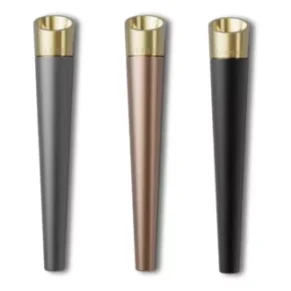Vessel Pipe: Understanding Its Role and Importance
Vessel pipe is a crucial component in various industrial applications, serving a unique purpose that often goes unnoticed. Whether you are in the oil and gas sector, chemical manufacturing, or even water treatment, understanding what vessel pipe is and how it functions can vastly improve operational efficiency and safety.
What is Vessel Pipe?
At its core, vessel pipe refers to piping that is integrated into pressure vessels, which are containers designed to hold gas or liquid at a pressure different from the ambient pressure. These pipes facilitate the transport of materials in and out of the vessels, making them essential for effective industrial processes. Constructed from robust materials like carbon steel, stainless steel, or special alloys, vessel pipes can withstand high-pressure environments while maintaining structural integrity.
The Critical Functions of Vessel Pipes
Vessel pipes not only provide a mechanism for transporting fluids but also play a pivotal role in ensuring safety and efficiency within systems. Here are some vital functions they serve:
1. Operational Efficiency: Vessel pipes are designed to optimize the flow of materials. Their diameter, material composition, and design directly impact the pressure drop within the system. Properly sized and configured pipes ensure that processes operate smoothly, minimizing downtime and maximizing productivity.
2. Safety Mechanism: In a high-pressure environment, the integrity of vessel pipes is non-negotiable. They are engineered to handle extreme conditions, reducing the likelihood of leaks and catastrophic failures. Additionally, many vessel pipes are fitted with safety features, such as pressure relief valves, to mitigate potential hazards.
3. Maintenance and Accessibility: Old or poorly maintained vessel pipes can lead to significant operational issues. Regular inspection and maintenance are vital for prolonging the lifespan of these pipes and ensuring that they perform optimally. Accessibility is another important factor; placing vessel pipes in easily reachable locations simplifies maintenance and inspection processes.
Choosing the Right Vessel Pipe Materials
The selection of materials is crucial when it comes to the reliability and functionality of vessel pipes. Each environment presents its unique challenges, and as such, materials need to be chosen accordingly.
1. Carbon Steel: Known for its strength and durability, carbon steel is often the go-to choice for many industrial applications. However, it may not be ideal for environments that are particularly corrosive.
2. Stainless Steel: This option offers excellent resistance to corrosion, making it suitable for chemical processing and water treatment. It is often preferred when cleanliness and hygiene are critical.
3. Special Alloys: In extremely harsh environments, such as those found in oil refineries or high-temperature applications, specialized alloys may be required. These materials often provide enhanced resistance to specific chemicals or operating conditions.
Installation Best Practices for Vessel Pipes
The installation process of vessel pipes is equally important as the material selection. Following best practices in installation can help ensure longevity and functionality.
– Proper Alignment: Ensuring that pipes are aligned correctly is vital for the efficiency of fluid transfer. Misaligned pipes can lead to excessive wear and tear, ultimately affecting performance.
– Secure Connections: All joints and fittings must be tightened appropriately to prevent leaks. Use of quality gaskets and sealants can further enhance connection reliability.
– Regular Testing: Following installation, regular pressure testing should be conducted to identify any weak points before the system goes live. This can prevent costly failures down the line.
Conclusion: The Indispensable Role of Vessel Pipe
In summary, vessel pipe plays a critical role in various industrial sectors, ensuring that processes run smoothly, safely, and efficiently. Understanding the importance of vessel pipes—not just in terms of material selection and installation but also in their operational mechanisms—can empower businesses to make informed decisions that enhance safety and productivity. Regular maintenance and strategic planning regarding vessel pipe usage are necessary to maintain their integrity, ultimately leading to improved operational outcomes. As industries continue to evolve, the need for reliable and efficient vessel pipes will remain an integral element in ensuring success.






Reviews
There are no reviews yet.